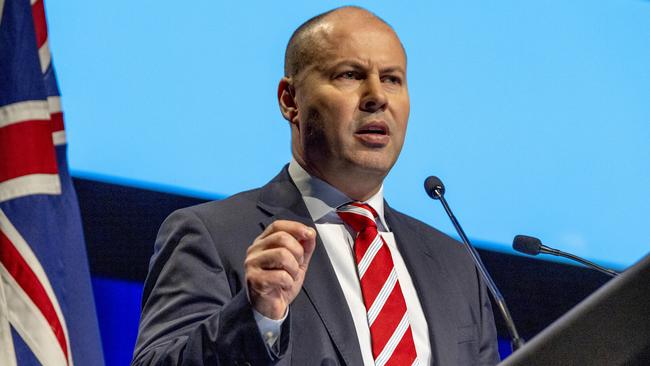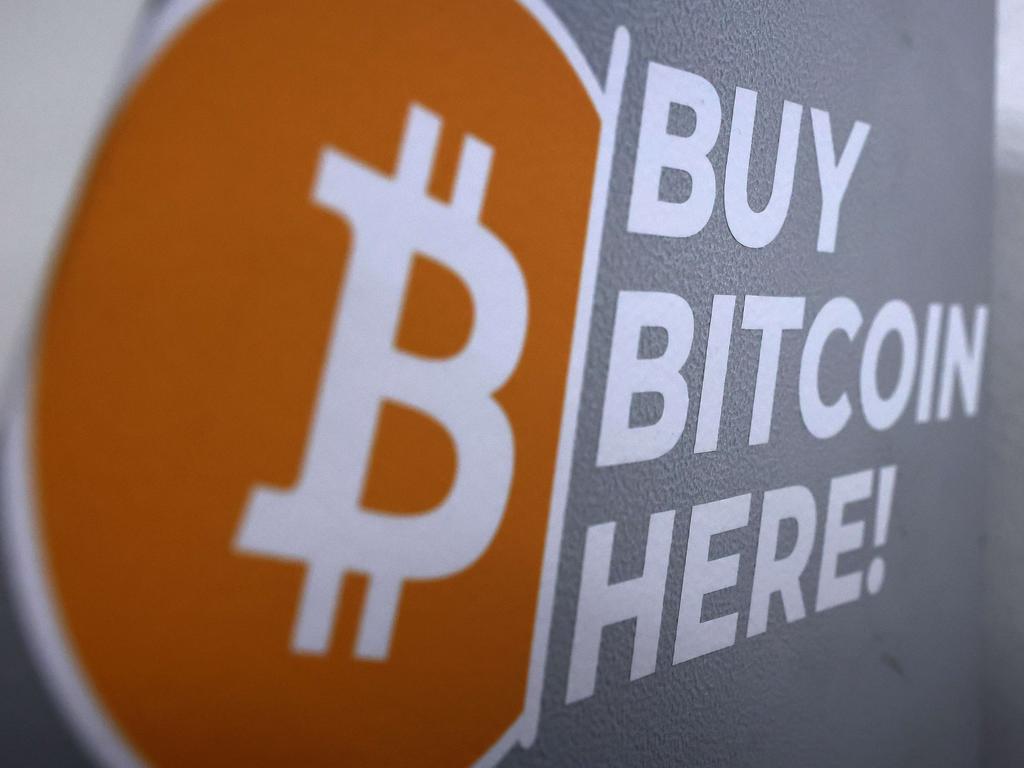Central digital currency weighed as Josh Frydenberg reforms payments systems
The Reserve Bank and Treasury are considering a central digital currency as Josh Frydenberg prepares the biggest shake-up of payments systems since the 1990s.

The Reserve Bank and Treasury are considering the feasibility of a central digital currency, under reforms aimed at establishing a regulated onshore cryptocurrency industry and driving competition across “buy now, pay later” and digital-wallet payment systems.
Josh Frydenberg on Wednesday will announce the biggest shake-up of the nation’s payments systems since the 1990s, including new intervention powers allowing the Treasurer to update Australia’s one-size-fits-all regulatory framework in real-time.
The Morrison government will land on its financial system reforms within 12 months, implementing new protections for consumers and workable regulations to tap into the $2 trillion cryptocurrency global market and drive domestic crypto trading.
The reform package, responding to all 41 recommendations made by three government and parliamentary reviews into Australia’s out-of-date payments system regulatory framework, was sparked by a massive surge in the use of new payment systems and cryptocurrency.
Since 2018, the Australian Taxation Office has recorded more than 819,000 people trading in cryptocurrency and digital assets but industry and government sources say the figure is much higher. During 2021, there has been a 63 per cent increase in domestic cryptocurrency trading compared with last year.
The “buy now, pay later” industry, dominated by homegrown tech giant AfterPay, accounts for 20 per cent of online retail transactions, with more than 5 million Australians registered with customer accounts. Australians have also shifted to digital-payment wallets, with around half of the adult population using their mobile phones to make purchases.
In a speech to the Australia-Israel Chamber of Commerce in Melbourne, Mr Frydenberg will outline the case for overhauling the national payments system and adopting a new approach to cryptocurrency, invoking the need to protect Australia’s “sovereignty”.
With existing licensing and regulatory frameworks failing to keep speed with the digital economy and the shift to online currency and payments, the reforms will focus on securing transactions and ensuring Australians aren’t caught out by rules enforced by foreign governments and multinationals.
“Recent surveys have found that up to 17 per cent of Australians currently own cryptocurrency, with that figure likely even higher among young Australians,” Mr Frydenberg will say in his speech..
“Despite this disruption, the regulatory framework governing the payments system has remained largely unchanged over the last 25 years.
“Given the pace of change and those leading it, if we do not reform the current framework it will be Silicon Valley that determines the future of our payments system. Australia must retain its sovereignty over our payment system.”
A key element of the government’s reform package will focus on the merits of a retail Central Bank Digital Currency, following similar considerations by regional partners including Singapore and Malaysia. The CBDC would offer a type of digital currency issued by a central bank and linked to sovereign currency, allowing for conversion between different forms of money. A retail CBDC would provide a digital version of cash that was universally accessible.
With the RBA and central banks across the globe actively investigating technologies to support CBDCs, a senior government source said the proposal was akin to an “RBA-backed bitcoin or cryptocurrency”.
RBA governor Philip Lowe will deliver a speech titled “Payments: the Future?” at the Australian Payments Network summit on Thursday.
Mr Frydenberg will say the reforms, following moves in Canada, Britain and Singapore to modernise regulatory frameworks for payments, will focus on giving consumers “greater confidence in their dealings with and utilisation of these crypto assets and new payment methods”.
“The comprehensive payments and crypto asset reform plan will firmly place Australia among a handful of lead countries in the world,” Mr Frydenberg will say. “For businesses, these reforms will address the ambiguity that can exist about the regulatory and tax treatment of crypto assets and new payment methods. In doing so, it will drive even more consumer interest, facilitate even more new entrants and enable even more innovation to take place. For consumers, these changes will establish a regulatory framework to underpin their growing use of crypto assets and clarify the treatment of new payment methods.”
The majority of cryptocurrency trading in Australia is done via offshore exchanges, where people are exposed to high risk if those exchanges fail. The largely unregulated trading of cryptocurrency would be combated locally by enforcing regulations including licensing for local traders.
Mr Frydenberg will say that about 55 million non-cash payments, worth around $650bn, are made in Australia every day.
“These are significant shifts which we need to be in front of,” he will say. “What is clear is that if we embrace these developments, Australia has an enormous opportunity to capitalise on the convergence between finance and technology.
“Our technology sector is already estimated to be generating $167bn in output and employing more than 850,000 Australians. With more than 220 million participants, global crypto assets are now worth over $US2 trillion. Australia has an opportunity to be among the leading countries in the world in leveraging this new technology.”
Under legislated powers to be developed following consultation with stakeholders early next year, the Treasurer would be granted intervention powers to ensure payments systems were fit-for-purpose as new technologies and consumer trends emerged.
The Australian understands that while the RBA has the ability to designate payments systems, it could only do so in the public interest. The new powers, taking into account cyber attacks and other risks to the system outside the RBA’s remit, would allow the Treasurer to intervene under a “national interest” trigger.
Treasury will also look at the rising trend of “de-banking”, with some lenders refusing to do business with individuals, remittance providers, and fintech and digital currency exchange firms exposed to crypto-assets. Mr Frydenberg has asked the Council of Financial Regulators and federal government agencies to draw up policy options by mid-2022 addressing fintech de-banking.
Consultation on the establishment of a licencing framework for digital currency exchanges will begin early next year.
Commonwealth Bank chief executive Matt Comyn, who has brought cryptocurrencies including bitcoin and ethereum on to the CBA app, said last month the major banks must lead the charge on cryptocurrency.








To join the conversation, please log in. Don't have an account? Register
Join the conversation, you are commenting as Logout